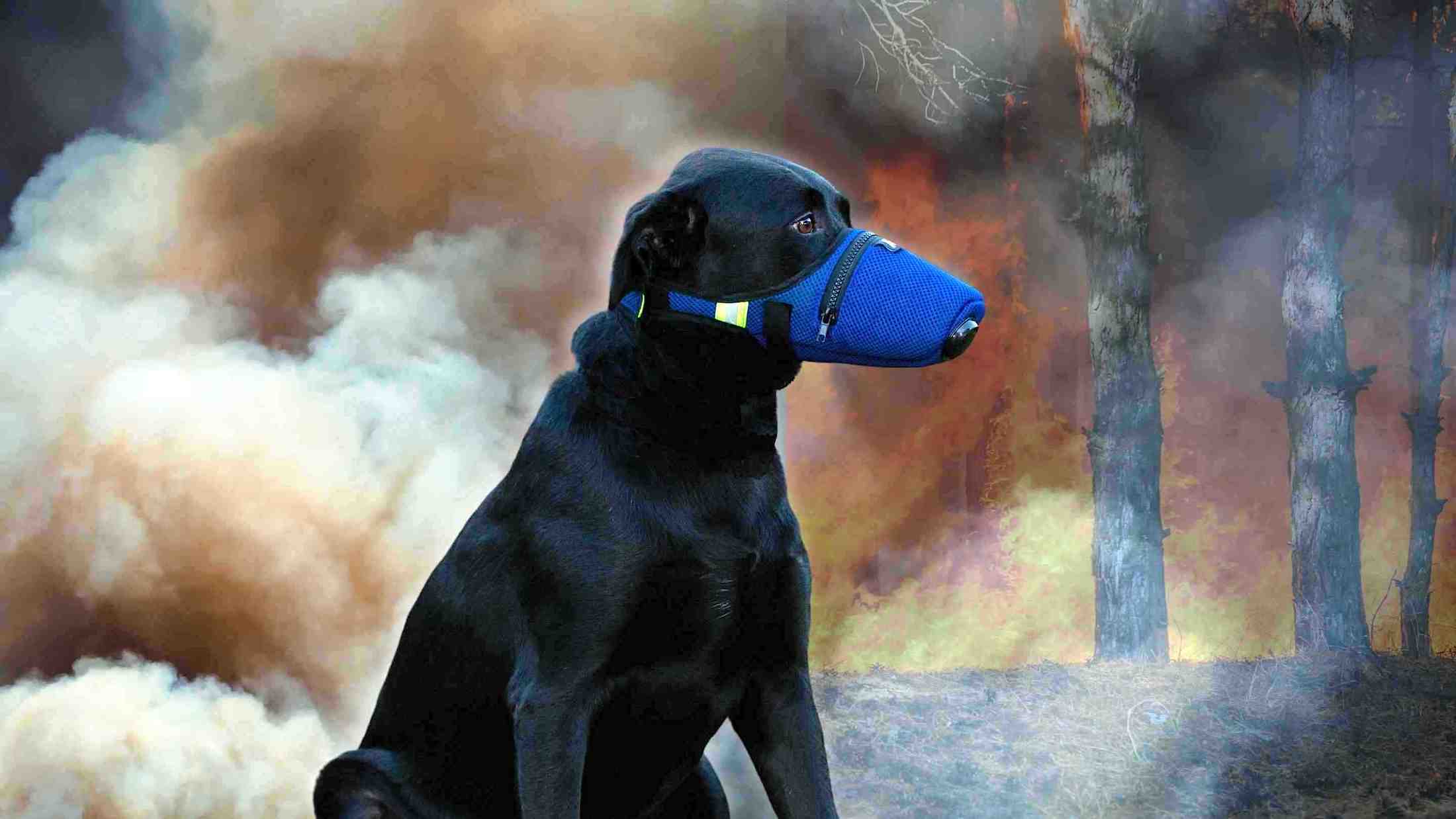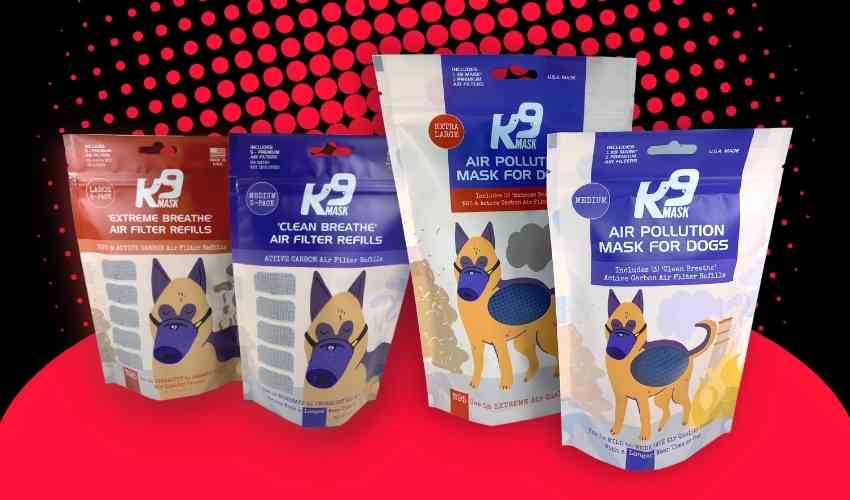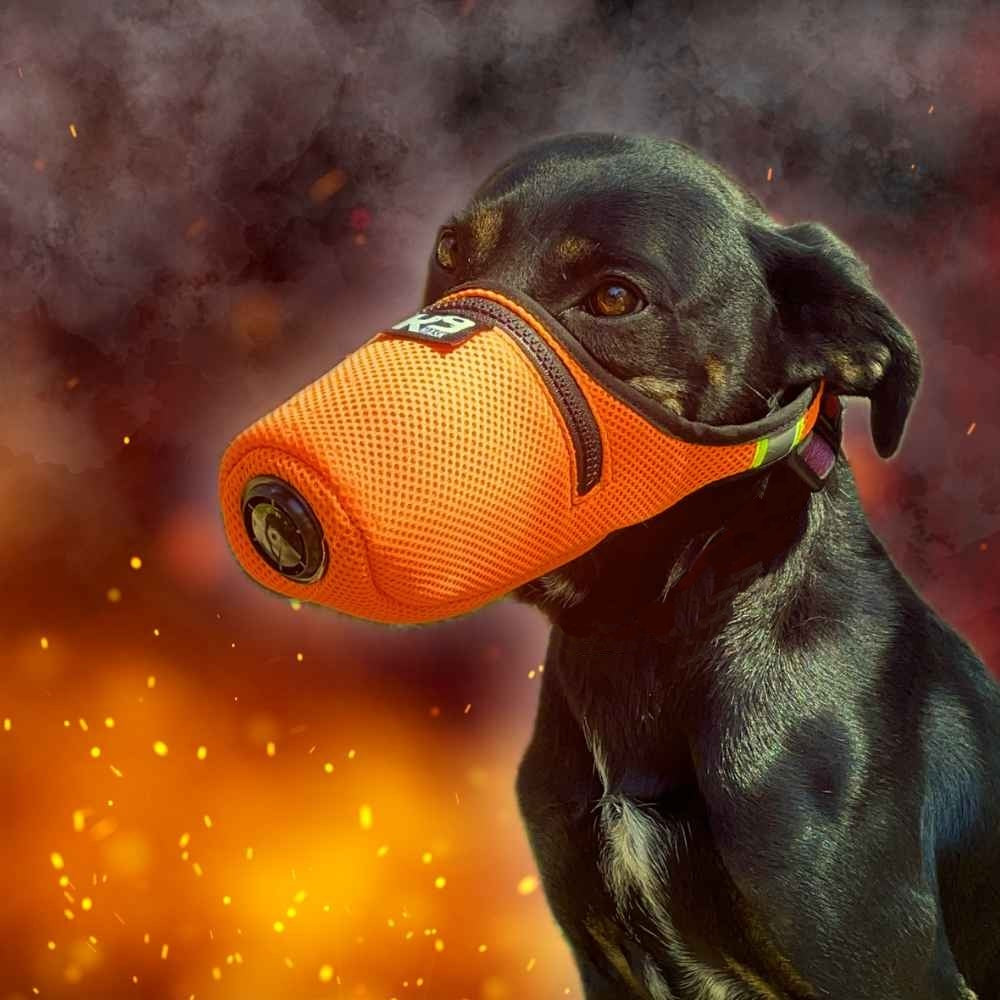Protecting your Dog During the COVID-19 Pandemic

The American Veterinary Medical Association notes that pets do not appear to be easily infected by COVID-19, with 65 testing positive for the disease in the United States. These numbers include four tigers and three lions at a zoo facility in New York in April, thirty-one pet cats, and twenty-three pet dogs.
These scattered COVID-19 cases in pets, including a North Carolina pug, a Yorkie in Texas, and German Shepherd in New York, are giving many dog and cat owners pause. The CDC recently updated its guidance for pet owners in light of these cases — although it is still not recommending routine testing for pets.
“We don’t want people to panic. We don’t want people to be afraid of pets” or to rush to test them en masse, CDC official Dr. Casey Barton Behravesh told the AP. “There’s no evidence that pets are playing a role in spreading this disease to people.”
Still, the sick pets (which are expected to fully recover) refueled fears over whether people infected with the virus could pass the illness onto their four-legged friends, or that they could catch the virus from them in turn.
Can you get COVID-19 from your pet, or someone else’s pet?
The CDC states on its coronavirus and animals section that, “At this time, there is no evidence that companion animals, including pets, can spread COVID-19 to people or that they might be a source of infection in the United States.” What’s more, Dr. Maria Van Kerkhove, the World Health Organization’s technical lead, said in a recent press briefing that “we don’t believe that [pets are] playing a role in transmission.”

But what about people spreading the virus to their pets?
While the CDC notes that it is “aware of a small number of pets, including cats, reported to be infected with the virus that causes COVID-19, mostly after close contact with people with COVID-19,” the possibility of transmission still appears unlikely.
But there is still much that we still don’t know about this new virus, and there have indeed been a handful of isolated sick animal cases, including two dogs in Hong Kong, a cat in Belgium and the Bronx Zoo lions and tigers. That’s why the World Health Organization is actively investigating the human transmission of COVID-19 to animals. Kerkhove acknowledged, “we think that [animals] may be able to be infected from an infected person.”
And as for the much-discussed cases of the two dogs in Hong Kong, Howe explained that these animals showed the presence of the virus, but otherwise had no clinical symptoms and were not ill. They also later tested negative. What’s more, the test that was used in these cases could detect the presence of just a particle of the virus. “To find pieces of the virus in stomach contents or stool does not mean [the dogs] are infected,” he said.
The first dog in Texas tested positive with the coronavirus infection in July. The dog, a 2-year-old a male Yorkie, in Tarrant County is the first animal in Texas to test positive for the virus that causes COVID-19 in humans. The U.S. Department of Agriculture’s veterinary lab received the test and the dog was confirmed to be infected the next day, according to the Texas Animal Health Commission.
2021 Research about the Covid Infection in Dogs
Dogs or cats that live in a household with people who have COVID often become infected and sick themselves. Experts advise infected individuals to keep a distance from their animals if possible.
New research shows that people who become infected with the novel coronavirus, or SARS-CoV-2, and fall ill often pass the pathogen on to their pets. The animals sometimes also become sick from the infection, occasionally severely, according to the results of two separate studies presented at this year’s European Congress of Clinical Microbiology and Infectious Diseases. The papers have not yet been published in scientific journals.
A team led by veterinarian Dorothee Bienzle of the University of Guelph in Ontario investigated potential COVID infection in 198 cats and 54 dogs. All of the dogs and 48 of the cats came from a household in which at least one person had COVID, and the rest of the cats came from an animal shelter or neuter clinic.
The team found that two out of three cats and two out of five dogs whose owners had COVID had antibodies against SARS-CoV-2, indicating they had been infected with the virus at some point, too. But in the shelter group, less than one in 10 cats had these antibodies. And in the neuter clinic, the figure was less than one in 38.
Dogs and cats that came from households in which owners had COVID also often developed symptoms of the disease, Bienzle and her team report. Between 20 and 30 percent of the animals experienced loss of energy and appetite, coughing, diarrhea, runny nose and respiratory problems.
The complications were mostly mild and short-term, but they were severe in three cases. In cats, the risk of infection was higher in those that were closely cuddled by their owners, according to behavioral surveys the researchers conducted in addition to the antibody tests. This cuddling correlation was not observed in dogs.

So what should a pet owner do if they contract COVID-19?
Health experts agree that you should play it safe and have minimal or no contact with your pet, especially because there are still a lot of unknowns about this new coronavirus. That means no cuddling, petting, kissing or sharing food with your fur baby, unfortunately. They also shouldn’t lick you. Keep the pet out of the room that you are recovering in, if possible, and have a family member take care of your critter while you rest up, including feeding, bathing and walking it. See if you can have a friend or neighbor who could take your pet out of the household.
If you live alone and have to take care of your pet yourself while sick, try to limit contact as much as possible. Wear a face mask or face covering when you’re around your animal, and wash your hands before and after you handle them.
Should your pet wear a mask or booties for protection?
The CDC is not currently recommending pets wear protective footwear or face masks at this time. Most of the cases of pets testing positive for the virus are those in close contact with known pet owners who are positive with COVID-19.
But, if you are wanting to be cautious there are solutions for your dog. The extreme breathe N95 replaceable air filters used in the K9 Mask® are created with the same standard as face masks worn by nurses and doctors in hospitals who are treating patients with Covid-19. N95 air filters are the most effective materials for protecting those who are in close and continual contact with the coronavirus. They are recommended by the CDC for these environments.
But, are N95 air filters 100% effective at protecting a person or pet from the coronavirus? No. They are not 100% effective for doctors, nurses, or dogs. So, a dog using the K9 Mask® properly is highly effective at protecting a dog from the coronavirus but not guaranteed. Also, it is only recommended for your dog to wear this mask for short durations and with constant visual monitoring to protect the dog from possible suffocation or overheating. Read more details and a complete list of warnings about your dog wearing a K9 Mask®.
Should you get your pet tested for COVID-19?
No, the CDC is not recommending tests for pets at this time.
What if you suspect your pet is sick with the coronavirus?
The CDC states that if your pet gets sick after contact with a person with COVID-19, do not take your animal to the veterinary clinic yourself. Call your vet and explain that your pet is showing symptoms like coughing, sneezing and not eating after being around a person with COVID-19. Some veterinarians may offer telemedicine consultations or other plans for seeing sick pets. Your veterinarian can evaluate your dog or cat, and determine the next steps for your pet’s treatment and care from there. Again, pets are only being tested in “very rare circumstances” and on a case-by-case basis. The good news is, all of the U.S. animals that have tested positive so far are expected to recover.
What precautions should you take if you walk a dog or foster a pet that belongs to someone sick with COVID-19?
While the virus is easy to pick up off of smooth surfaces such as countertops and door knobs, dog and cat fur is more porous and traps the virus. This makes it difficult to pick up from an animal’s coat. There’s certainly nothing wrong with bathing an animal when it gets in your home. There are all kinds of great disinfectant shampoos for dogs. And basic hygiene, such as washing your hands before and after you handle a pet — and, sorry animal lovers, but no kissing your pet on the mouth — is key to prevent picking up any kind of germ from an animal, let alone COVID-19.
A dog’s mouth is not as clean and sterile like some people think. When you think about all of the things a dog licks ... it’s just not a good idea.

You’re fostering a sick friend’s pet. Should you quarantine it from your own pets? Could pets spread it to other pets?
At this point we don’t believe you need to quarantine pets from each other. The University of Wisconsin study suggests that cats can catch it from each other, but none of the felines in the experiment appeared to get sick or show any symptoms. Three domestic cats were inoculated with the virus, and they were each put in a cage with an uninfected cat. While the cage mates did contract the virus, none of the cats got sick, and all six were virus-free within six days. But more research still needs to be conducted, including among domesticated dogs.
Of course, if the animals don’t know each other, or aren’t friendly with each other, you would want to introduce them gradually anyway. That could include socialization techniques such as supervised introductions, crating, and making sure you’re not praising or fawning one animal over another. The Humane Society offers these tips for introducing new dogs and new cats into multi-pet households.
The FDA also noted in its new video that preliminary research suggests that cats and ferrets are more likely to get the virus than dogs.
What’s the proper social distancing etiquette with pets?
Keep six feet away from other people. Wear face masks in public. Avoid crowds, and don’t congregate in tight spaces. Humans have been practicing these social distancing measures to fight the spread of the coronavirus for weeks now, and the CDC stresses that pet owners need to make sure that their animals follow these new guidelines, too. So that means you shouldn’t let your pets interact with people from outside your household. Keep your dog leashed and six feet away from other dogs and other people while you’re on a walk; avoid dog parks and dog runs where people and their pets may congregate (if your city hasn’t already closed them); and politely discourage anyone from petting your puppy.
It is not best to let your dog go up and sniff other dogs or people. You don’t know if somebody recently coughed on that dog. While the evidence so far suggests that it’s extremely unlikely you would pick up the coronavirus from an animal’s coat, health experts are still advising everyone to keep their distance out of an abundance of caution. Trying to maintain social distancing is a good thing. And if someone pets your dog on a walk, it may be good to bathe your dog when you get home.
If you generally let your cat out, now is the time to keep kitty indoors, just to stay on the safe side.
What if your pet gets sick with something else while you’re in quarantine?
While many veterinary offices are only seeing urgent care or emergency cases at the moment, you still need to call a vet if your pet shows symptoms such as: an extreme change in eating habits; excessive thirst; vomiting frequently or vomiting blood; unusual stool; becoming more sluggish than usual; sudden weight loss; cloudy or red eyes; as well as emergency situations such as possibly ingesting poison, difficulty breathing, seizures, open wounds or broken bones.
Animals are still getting sick, and vets are still seeing animals every day. Call your local vet and explain what’s going on, and they can help determine if a pet should be brought in or not. Some practices may ask the pet owner to drive up to the clinic, where someone will then talk to the owner in the car, and possibly bring the pet into the clinic for care while the owner waits outside or waits at home.
The last word about your pet getting Covid-19?
There have been animal cases and deaths related to COVID-19, but the CDC states there is no evidence that pets can significantly spread the virus and animal-to-human transmission is highly unlikely. However, extra precautions should be taken if you have either received a positive test or suspect being infected. The general rule is to treat your pet as you would a person, maintaining distance whenever possible and wearing a face covering to avoid transmission. If possible, have another person take care of the pet while you're infected. Although the chances of spreading the virus are extremely low, it doesn't hurt to be prepared.
For more information about taking care of your pets during the pandemic, check out the following resources:
American Veterinary Medical Association: avma.org
The Centers for Disease Control: cdc.gov/coronavirus








